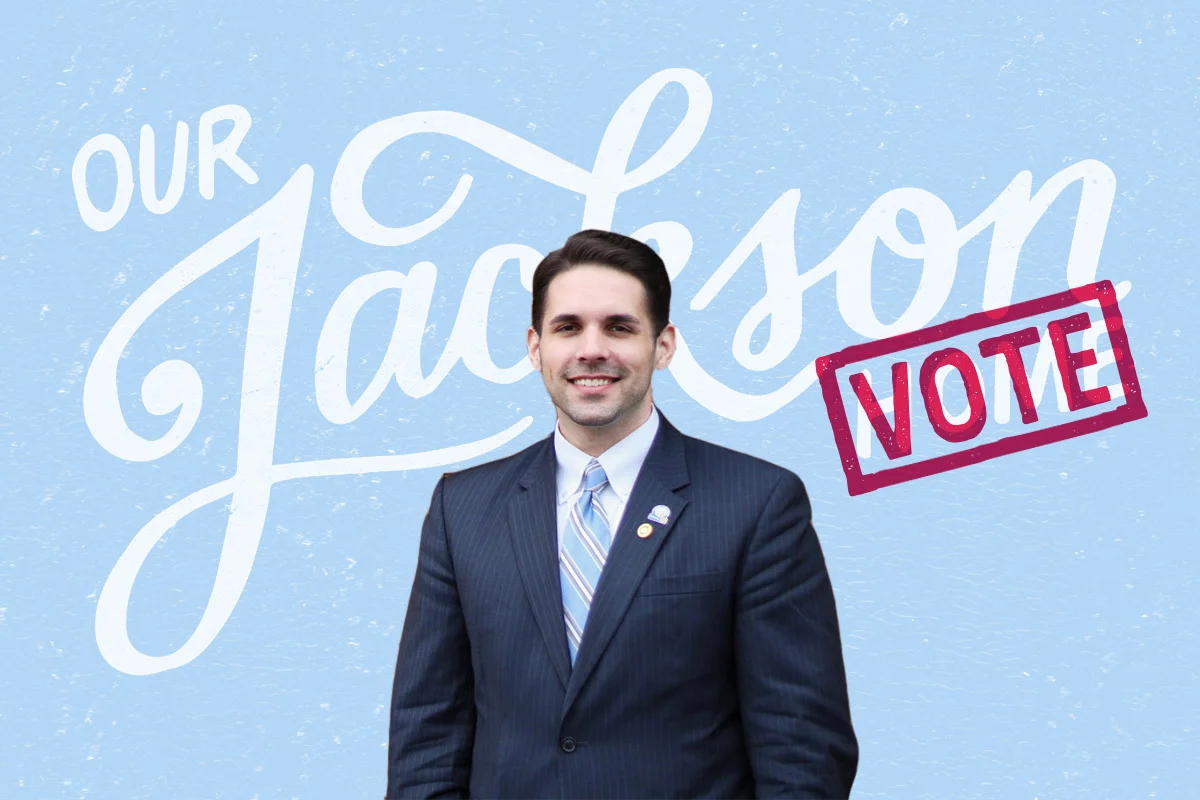This Is Different
Three. It’s a magic number. It’s the Holy Trinity, symbolic of perfection and completion. There were three essential entities in Greek Mythology ruling the sky, the sea, and the underworld. “Third time’s the charm.”
Throughout history, the number three has been revered in nearly every culture, even right here in Jackson. We have three governing bodies that have affected and will continue to affect our education system for years: the city council, the county commission, and the school board. To be frank, those three entities haven’t gelled as well as the Father, the Son, and the Holy Spirit. Even Zeus, Poseidon, and Hades were able to rule their domains with much less consternation than our local governing authorities have.
But that all changed recently.
Without rehashing the past in detail, some context needs to be provided in order to appreciate the magnitude of what has taken place in our community.
Twenty-six years ago, the city and county schools consolidated to become the Jackson-Madison County School System. This consolidation brought about two things: the beginning of the matriculation of middle- and upper-class caucasian students to private schools and the full responsibility of the county commission to fund the consolidated system (with a promise from the city to help with funding by giving a percentage of the sales tax to the county).
Fast forward to the summer of 2017, and most everyone knows what happened. The city reneged on its promise of the sales tax because that number had ballooned to twelve million dollars. The county cried about it. A lawsuit was filed. A settlement was reached. And in August of that summer, Eric Jones began his first year as Superintendent and cast a vision that (hyperbole aside) would attempt to save the school system and, in all honesty, the future of our city.
The first step for Dr. Jones was to repair the relationship between the county commission and the office of the superintendent. The relationship with former superintendent Dr. Verna Ruffin was tedious at best and antagonistic at worst. Since the county commission is the sole financial benefactor for the school system, that relationship is somewhat important. Mending was relatively easy, though, because the county commission turned over a few seats to commissioners who understood the importance of the condition of the school system and because Dr. Jones had a clear vision for what he wanted to accomplish.
The next stop for Dr. Jones was the city council. Even though the city had pulled out of the funding of schools just a few months earlier, an Education Council was formed to explore options for what Dr. Jones was asking. The formation of that council provided a spark of hope for the possibility of the city joining the county to financially support the school system.
This past August, five new school board members were elected to the board. That meant that over half the board was brand new. With the new school board elected, Dr. Jones laid out a vision that he would present to the them, the county commission, and the city council. And so began the most important three months in recent history for the City of Jackson and Madison County.
“Once again, it seemed that the same narrative was being written for the school system: a faint hope of promise snuffed out by self-serving interests.”
On October 4, the school board held its monthly meeting downtown at City Hall. The change in venue from Central Office was to accommodate what was expected to be an unusually large crowd. At the previous work session, several school board members proposed different ideas that put Dr. Jones’ vision in jeopardy. School board chairman, Kevin Alexander, had several ideas. Doris Black had several ideas. Morris Merriweather had several ideas. The barrage of proposals ranged from having a K-12 school on Northside’s campus to purchasing land near Three Way for a future high school to changing school start times. It was like someone threw fistfuls of thoughts at a wall to see if any of them stuck. There was no direction, no consistency. There were outside influences impacting these suggestions and, once again, it seemed that the same narrative was being written for the school system: a faint hope of promise snuffed out by self-serving interests.
I was in Texas at my daughter’s choir concert two days before the meeting. Social media was on fire but not in a bad way. People were talking. There was conversation. There was pressure being applied from thoughtful citizens who cared about the school system.
This was something new. This started to feel different.
Driving home through Arkansas that night, I called school board member Doris Black and explained why I believed the smattering of ideas was a hindrance to the vision Dr. Jones had for the school system. We each listened to the other’s viewpoints and found out we shared a mutual love for the Green Bay Packers. She wasn’t even my school board representative.
This, too, felt different. This felt positive.
City Hall was packed for the school board meeting two nights after that conversation. Attendees ranged from involved parents to concerned neighbors, city council members to county commissioners.
This felt really different.
After public comments and discussion, Dr. Jones delivered a powerful exhortation on why he chose to come to Jackson, and I think that sealed the deal, quieting all the noise of the previous seventy-two hours. After a few compromises, the school board decided to table the vote until after their retreat.
A few weeks later, the school board voted to support the plan of Dr. Jones with Morris Merriweather being the lone dissenter. One down, two to go.
With the school board unified, the county commission had to hold a vote to help fund the construction of a new Jackson-Central Merry High School. The vote passed 20-1. In previous years, procuring money from the county commission (other than their “maintenance of effort” money that was required by law) was like pulling teeth. But this vote was far more important than the money that the county agreed to pay. This vote was symbolic.
For years residents of East Jackson have felt overlooked, and in many ways they have been. Whitehall Elementary became a pre-k school instead of a K-5. Jackson Central-Merry was closed in 2016. Economic development stalled or was never truly given a chance to start. Meanwhile, just across North Highland, businesses and residences were booming. Northwest Jackson was flourishing. In East Jackson, though, voices were not being heard.
“Perception doesn’t equal reality, but it sure can create it.”
There’s a perception that the county commission has seen the school system and certain schools in our system as a burden or hindrance. Perception doesn’t equal reality, but it sure can create it. This is why this vote by the county commission was so important. The group (63% caucasian) voted overwhelmingly to help fund the building of a new Jackson-Central Merry in an area of town that is desperate to be heard.
This doesn’t just feel different. This is different.
With the county commission and the school board behind Dr. Jones, all that was left was the City of Jackson.
In 2014, the city realized it had not been paying a “mixed drink” tax to help fund the schools. The money not paid totaled close to three million dollars. To be fair, there were other cities in Tennessee who made the same mistake. The city and county reached a settlement, and the schools got half of what they were supposed to get. In 2017, the city simply decided not to continue paying their portion of the sales tax collected that was agreed upon in 1992. The agreement contract: a handshake. That total had risen to around twelve million dollars.
We all love stories of restoration—to see someone make mistakes made and then try their hardest to right those wrongs. Literature is full of characters who find redemption through a certain deed or journey.
In the past, our city had mishandled some situations to say the least. This was their chance to make it right.
In November, the city was set to vote to approve eleven million dollars. Only eight council members were at the meeting, so the vote was tabled until December. On December 4, the city voted 6-3 to help fund the building of Madison Academic High School on the campus of the University of Memphis at Lambuth, thus allowing the vision of Dr. Jones to come to financial fruition. Coincidentally, the amount of eleven million is eerily close the amount the city pulled from the county eighteen months before. Restoration complete. The circle is closed.
After years of divisiveness, how did we get here? How did three separate entities who have never communicated all that well come to an agreement that will invest millions of dollars into our school system? Some of it was wheeling, dealing, partnerships, tax rates, and things that I’ll let you read about in articles that Brandon Shields wrote about this entire process. Some of it was the vision and leadership of Dr. Eric Jones. Mostly, however, it was voices from our community who engaged in the important work of holding our elected officials accountable. Some of those voices were from new mouths that began to speak out for the first time. Some of those voices were established ones who realized that the same things couldn’t continue to be repeated without disastrous results for our community.
Ben Phillips wrote a series of articles highlighting the funding of our schools and should be considered for some sort of investigative journalism award. Shields reminded us of the importance of media in a town like ours. School board members engaged with the community. County commissioners saw beyond the bottom line. The city council made amends for past discretions.
“The days of shirking responsibility are over.”
I have lived in this town for thirty-nine years and have been part of this school system as a student or a teacher for twenty-three of those years. I have always been honest about the shortcomings of our city, but right now is different. There are strong voices in our city with fresh ways of thinking that are having influence in Jackson. There are people who want to do what is right and will put pressure on elected officials to make that happen. The days of shirking responsibility are over. The voices who say, “It’s not the city’s responsibility to fund education,” are being drowned out by a collection of voices who view Jackson and Madison County as a whole and not distinctive parts. Those voices say, “We are all responsible for the direction of our school system and our town.”
Jackson is not perfect. Our school system is not perfect. Both have been victims of poor decision-making in the past. Both are years behind where they could be if certain things had been done differently. That door is closed now, though. We are where we are. And where we are right now holds more promise than I can ever remember. Let us all continue to see ourselves as part of the collective whole. Let the new voices continue to speak and the old voices continue to progress. Let us continually remind one another of what this process was like and the way we all came together for something greater than ourselves.
Gabe Hart is an English and Language Arts teacher at Northeast Middle School. He was born and raised in Jackson, graduating from Jackson Central-Merry in 1997 and Union University in 2001. Gabe enjoys spending time and traveling with his daughter, Jordan, who is eight years old. His hobbies include reading, writing, and playing sports . . . even though he’s getting too old for the last one. Gabe lives in Midtown Jackson and has a desire to see all of Jackson grow together.
Header image by Landon Preston.





















We live in a critical society. Social media is mostly to blame for that, along with twenty-four-hour “news” networks and talk radio. Everyone has a voice whether they have anything worth saying or not. If you have a bad experience at a restaurant, Tweet about it. If your hotel bed isn’t as comfortable as you think it should be, grab your phone and give it two stars on Google. I don’t exempt myself from taking part in the reactionary culture in which we find ourselves.